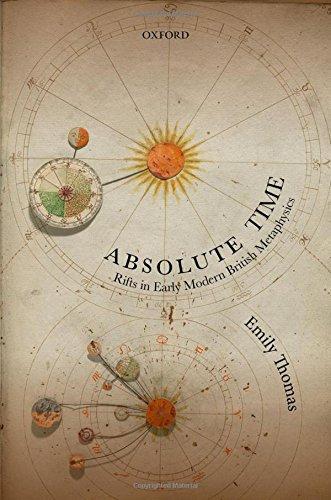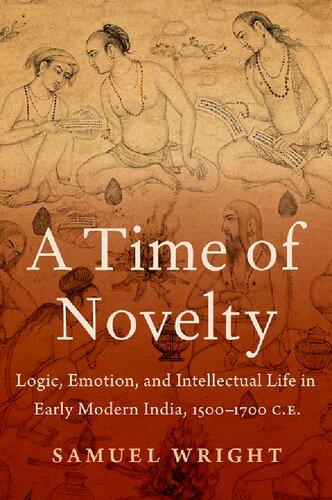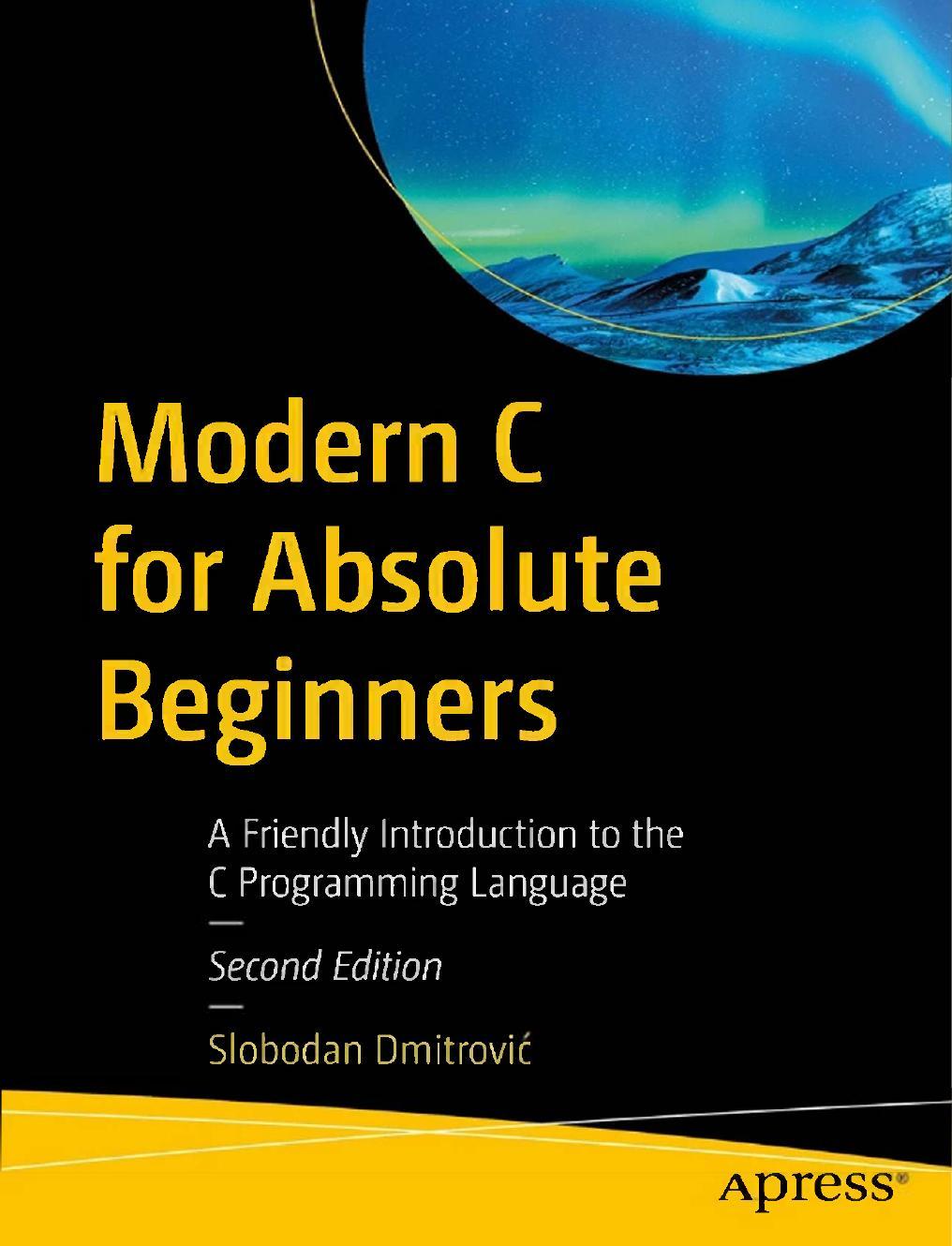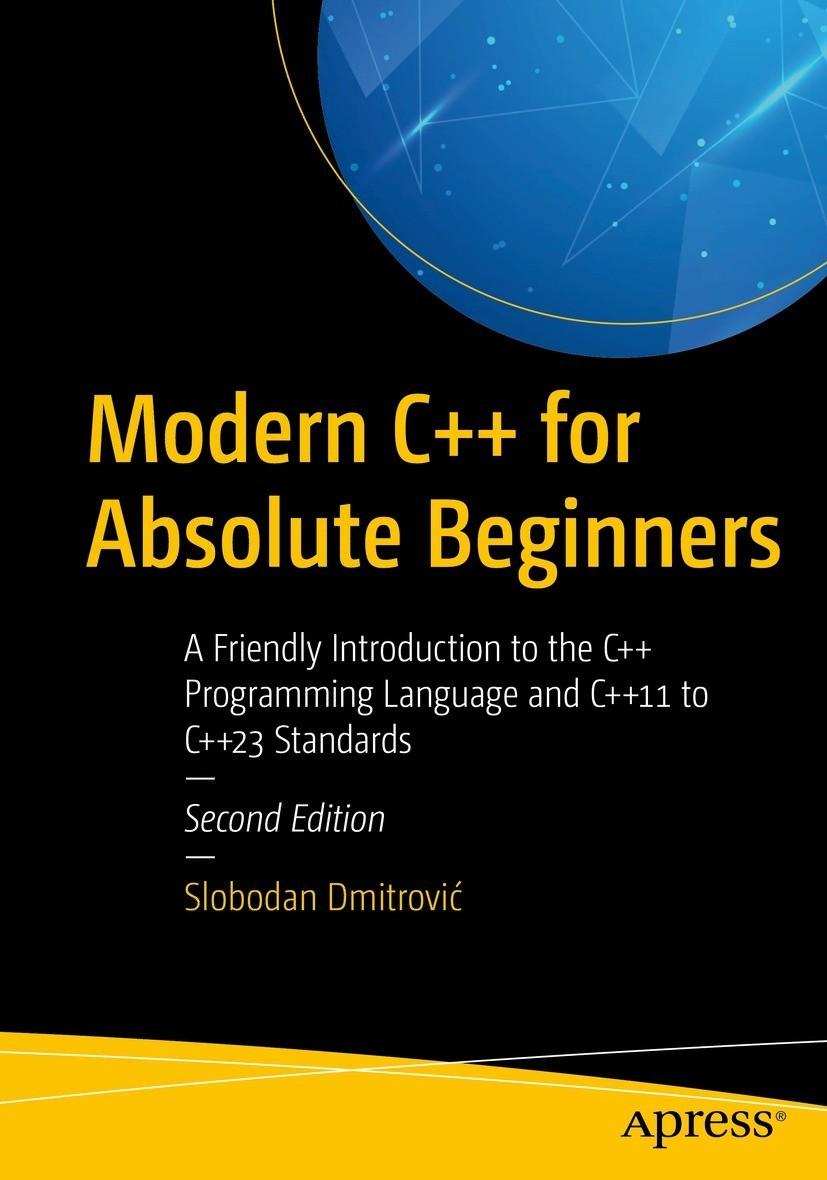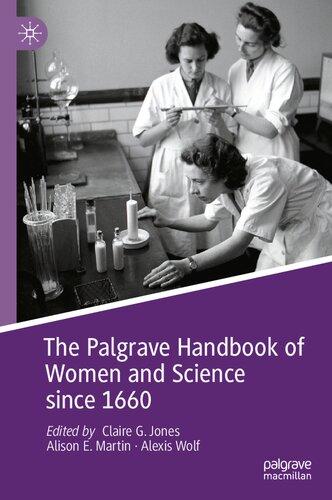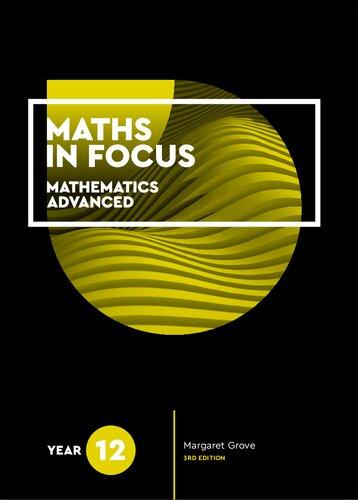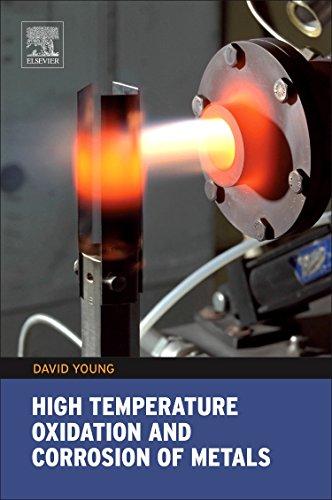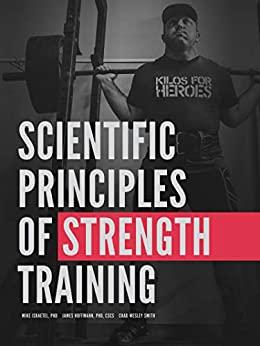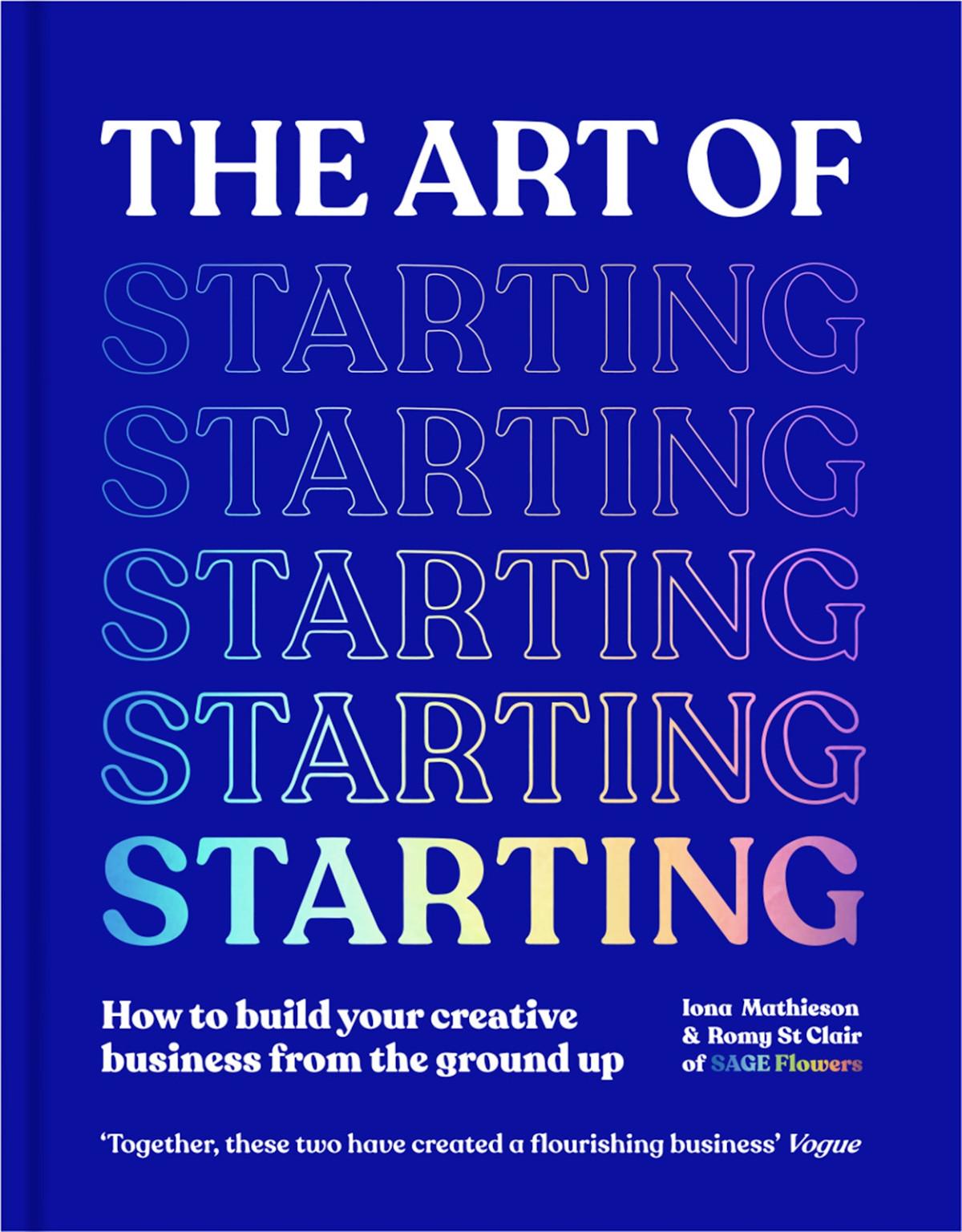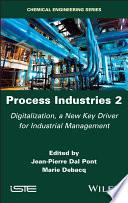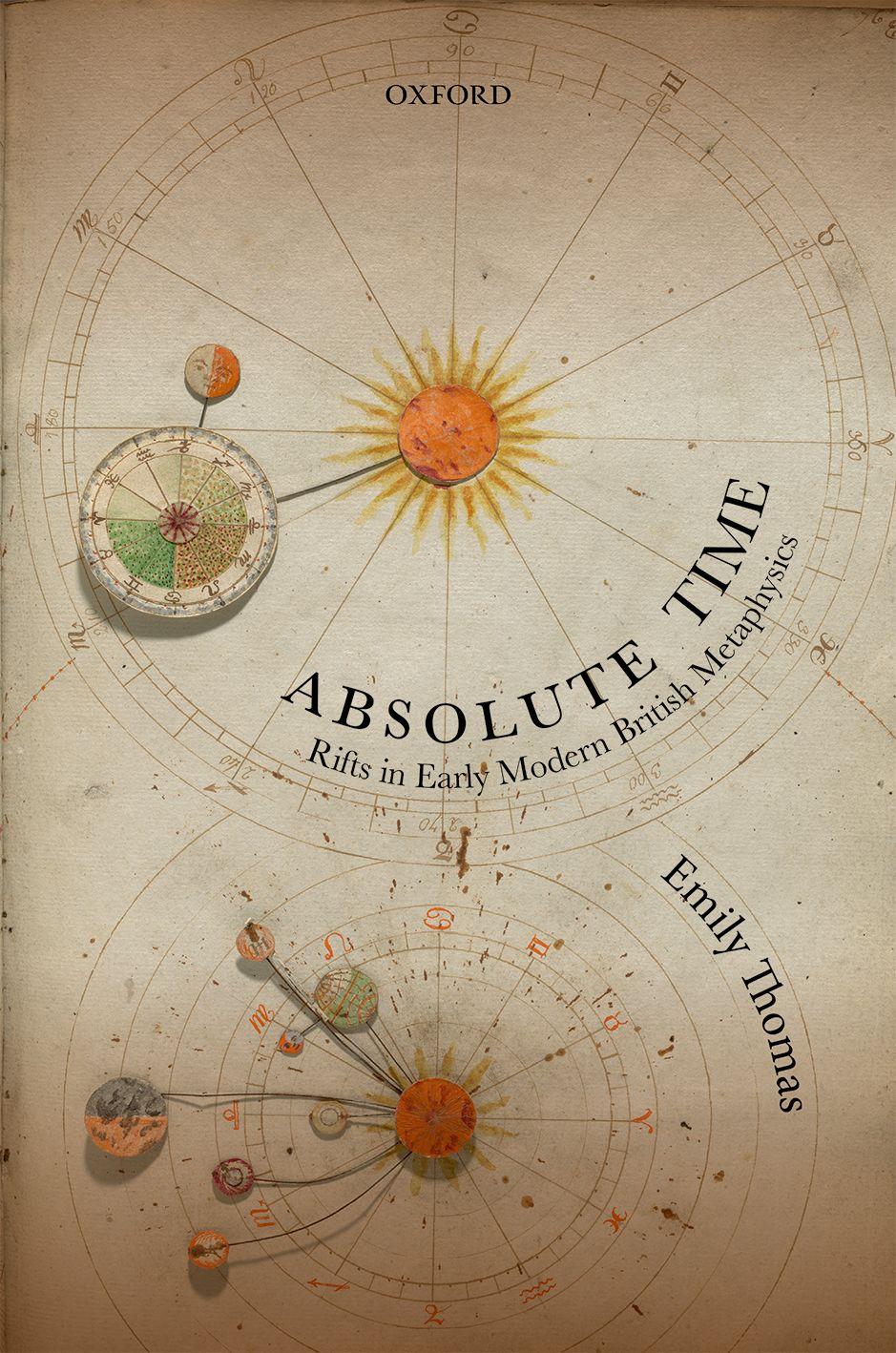AbsoluteTime RiftsinEarlyModern BritishMetaphysics
EmilyThomas
GreatClarendonStreet,Oxford,OX26DP, UnitedKingdom
OxfordUniversityPressisadepartmentoftheUniversityofOxford. ItfurtherstheUniversity’sobjectiveofexcellenceinresearch,scholarship, andeducationbypublishingworldwide.Oxfordisaregisteredtrademarkof OxfordUniversityPressintheUKandincertainothercountries
©EmilyThomas2018
Themoralrightsoftheauthorhavebeenasserted
FirstEditionpublishedin2018
Impression:1
Allrightsreserved.Nopartofthispublicationmaybereproduced,storedin aretrievalsystem,ortransmitted,inanyformorbyanymeans,withoutthe priorpermissioninwritingofOxfordUniversityPress,orasexpresslypermitted bylaw,bylicenceorundertermsagreedwiththeappropriatereprographics rightsorganization.Enquiriesconcerningreproductionoutsidethescopeofthe aboveshouldbesenttotheRightsDepartment,OxfordUniversityPress,atthe addressabove
Youmustnotcirculatethisworkinanyotherform andyoumustimposethissameconditiononanyacquirer
PublishedintheUnitedStatesofAmericabyOxfordUniversityPress 198MadisonAvenue,NewYork,NY10016,UnitedStatesofAmerica
BritishLibraryCataloguinginPublicationData
Dataavailable
LibraryofCongressControlNumber:2017957995
ISBN978–0–19–880793–3
Printedandboundby
CPIGroup(UK)Ltd,Croydon,CR04YY
LinkstothirdpartywebsitesareprovidedbyOxfordingoodfaithand forinformationonly.Oxforddisclaimsanyresponsibilityforthematerials containedinanythirdpartywebsitereferencedinthiswork.
1.SceneSetting:Time,Philosophy,andSeventeenth-CenturyBritain13
4.SpaceandTimeinIsaacBarrow:AModalRelationistMetaphysic68
4.4.1The firstreading:Barrowlacksadeepermetaphysics
4.4.2Thesecondreading:identifyingspaceandtimewithGod
4.4.3Thethirdreading:spaceandtimeasunrealcontainers
4.5.3AnobjectiontoreadingBarrowasamodalrelationist
5.EarlyBritishReactionstoAbsolutism:1664to168793
6.Newton’ s DeGravitatione onGodandhisEmanativeEffects104
7.LockeasaSteadfastRelationistaboutTimeandSpace125
7.2SketchingLocke’sLifeandWorks
7.3Locke
s1676–1678journals
7.4ANewtonianInterlude:Locke,Newton,andthe1687 Principia
’s1690 Essay
7.5.1ReadingLocke’s1690 Essay asexplicitlyneutral
7.5.2UnderminingtheabsolutistreadingofLocke’s1690 Essay
7.5.3ReadingLocke’s1690 Essay asimplicitlyrelationist
8.LaterBritishReactionstoAbsolutism:1690–1704150
Abbreviations
ATDescartes,Rene(1964–76). OeuvresdeDescartes [VolsI–XII].Edited byAdam,C.&Tannery,P.Vrin/C.N.R.S.:Paris.
CLNicolson,MarjorieandSarahHutton(eds.)(1992). TheConway Letters:theCorrespondenceofAnne,ViscountessConway,HenryMore andtheirFriends,1642–1684.OxfordUniversityPress:NewYork.
CSM/KDescartes,Rene(1985–91). ThePhilosophicalWritingsofDescartes [VolumesI–III].TranslatedbyJohnCottingham,RobertStoothoff, DugaldMurdoch,and(forVolumeIII)AnthonyKenny.Cambridge UniversityPress:Cambridge.
HClarke,Samuel(1738). TheWorksofSamuelClarke.Editedby BenjaminHoadley.London.
NBarrow,Isaac(1859). TheTheologicalWorksofIsaacBarrow.Edited byAlexanderNapier.CambridgeUniversityPress:Cambridge.
PPMore,Henry(1878). TheCompletePoemsofDr.HenryMore.Edited byAlexanderB.Grosart.EdinburghUniversityPress:Edinburgh.
PWNewton,Isaac(2004). PhilosophicalWritings.EditedbyAndrew Janiak.CambridgeUniversityPress:Cambridge.
WBarrow,Isaac(1860). TheMathematicalWorksofIsaacBarrow.Edited byWilliamWhewell.CambridgeUniversityPress:Cambridge.
VClarke,Samuel(1998). ADemonstrationoftheBeingandAttributesof God,andotherwritings.EditedbyEzioVailati.CambridgeUniversity Press:Cambridge.
ChronologyofSelectedWritings
1644Descartes PrinciplesofPhilosophy
1644Gassendi DisquisitioMetaphysica
1647HenryMore PhilosophicalPoems
1648JanBaptistvanHelmont Ortusmedicinae
1651Hobbes Leviathan
1652IsaacBarrow CartesianaHypothesis
1653HenryMore AntidoteagainstAtheism
1654WalterCharleton PhysiologiaEpicuro-Gassendo-Charletoniana
1655Hobbes DeCorpore
1655HenryMore AntidoteagainstAtheism,secondedition 1655ThomasHobbes DeCorpore
1658Gassendi OperaOmnia
1659HenryMore ImmortalityoftheSoule
1664MargaretCavendish PhilosophicalLetters
1665SamuelParker TentaminaPhysico-TheologicadeDeo
c.1664–66IsaacBarrowdeliverstwosetsoflecturesatCambridge,laterpublishedas LectionesGeometricae and Mathematicae
1668HenryMore DivineDialogues
1670IsaacBarrow LectionesGeometricae
1671HenryMore EnchiridiumMetaphysicum
1671LockecomposesDraftsAandBof AnEssayConcerningHuman Understanding
1674NathanielFairfax ATreatiseoftheBulkandSelvedgeoftheWorld
1675RobertBoyle SomeConsiderationsabouttheReconcileablenessof ReasonandReligion
1676–78Lockemakesseveraljournalentriesontimeandspace
c.1677–79AnneConwaycomposes ThePrinciplesoftheMostAncientand ModernPhilosophy
1677Spinoza Ethics
1678RalphCudworth TheIntellectualSystemoftheUniverse 1679HenryMore EnchiridiumMetaphysicum,secondedition 1683JohnTurner DiscourseoftheDivineOmnipresence
1683IsaacBarrow LectionesMathematicae
c.1664–85Newtoncomposes DeGravitatione
1685LockecomposesDraftCof AnEssayConcerningHumanUnderstanding
1687Newton PhilosophiæNaturalisPrincipiaMathematica
1690Locke AnEssayConcerningHumanUnderstanding
1690AnneConway’ s ThePrinciplesoftheMostAncientandModern Philosophy isanonymouslypublishedinthecollection Opuscula philosophica
1694RichardBurthogge AnEssayuponReason,andtheNatureofSpirits
1696RichardBentley EightSermonspreach’dattheHonourableRobert Boyle’sLecture
1697JosephRaphson DeSpatioReali
1702JohnKeill Introductioadveramphysical
1704WilliamKing DeOrigineMali
1704Newton Opticks
1704JohnToland LetterstoSerena
1704SamuelClarkedelivershis firstsetofBoylelectures,laterpublished as ADemonstrationoftheBeingandAttributesofGod
1704WilliamWotton ALettertoEusebia
1705SamuelClarke ADemonstrationoftheBeingandAttributesofGod
1705GeorgeCheyne PhilosophicalPrinciplesofNaturalReligion
1706Newton’ s Opticks translatedintoLatin Optice
1710Berkeley PrinciplesofHumanKnowledge
1712SamuelClarke Scripture-doctrineoftheTrinity
1713Newton PhilosophiæNaturalisPrincipiaMathematica, second edition
1714JohnJackson ThreeLetterstoDr.SamuelClarke
1715GeorgeCheyne PhilosophicalPrinciplesofReligion,Naturaland Revealed.
1715–16LeibnizandSamuelClarkecorrespond
1717 ACollectionofPapers,WhichpassedbetweenthelateLearned Mr.LeibnizandDr.Clarke
1718Newton Opticks,secondedition
1718SamuelColliber AnImpartialInquiryintotheExistenceandNature ofGod
1726Newton PhilosophiæNaturalisPrincipiaMathematica, thirdedition
1728HenryPemberton AViewofSirI.Newton’sPhilosophy
1731EdmundLaw AnEssayontheOriginofEvil
1732JohnClarke DefenceofDr.Clarke’sDemonstrationoftheBeingand AttributesofGod
1732EdmundLaw AnEssayontheOriginofEvil,secondedition
1733JohnClarke SeconddefenceofDr.Clarke’sDemonstrationofthe BeingandAttributesofGod
1733JosephClarke Dr.Clarke’snotionsofspaceexamined
1733JohnClarke ThirddefenceofDr.Clarke’sDemonstrationoftheBeing andAttributesofGod
1733IsaacWatts PhilosophicalEssaysonVariousSubjects
1734JohnJackson TheExistenceandUnityofGod
1734JosephClarke AfartherexaminationofDr.Clarke’snotionsofspace
1734EdmundLaw AnEnquiryIntotheIdeasofSpace,Time,Immensity, andEternity&c
1735JohnJackson DefenceofTheExistenceandUnityofGod
1735SamuelColliber AnImpartialEnquiryIntotheExistenceandNature ofGod,thirdedition
1743CatharineCockburn RemarksUponsomeWritersonMorality
Acknowledgements
Metaphysicaltheoriesdonotspringfullyformedfromtheether,andnordo books.Anumberofpeopleandinstitutionshavehelpedmebringthisbookinto existence,andIofferthemmysincerethanks.
Overcupsofteaandglassesofwine,I’veespeciallyreceivedadvicefrom ChristophJedan,MartinLenz,AndreaSangiacomo,ErinWilson,MattDuncombe, HanThomasAdriaenssen,SanderdeBoer,BiancaBosman,SarahHutton,Robin LePoidevin,TimCrane,TomStoneham,JeremyDunham,JessLeech,OriBelkind, EricSchliesser,CarlaRitaPalmerino,GeoffGorham,EdSlowik,andAndrew Janiak.
IamalsogratefulforthethoughtfulworkofPeterMomtchiloff,andthatof theotherstaffatOxfordUniversityPress,throughoutthepublicationprocess. The firstpeopletoreadthismanuscriptasawholewereinfacttwoanonymous refereesforOxfordUniversityPress,andtheirdetailedcommentsonthat first(significantlyrougher)draftwerephenomenallyhelpful youknowwho youare.
Alongtheway,Ihavepresentedportionsofthisbookatavarietyofmeetings, seminars,andconferences,includingtalksattheGhentUniversity;Universityof Cambridge;UniversityofYork;UniversityofGroningen;KohnInstitute,Tel Aviv;DurhamUniversity;CUNY,NewYork;MacalesterCollege;Universityof Alaska,Anchorage;andLeidenUniversity.Inaddition,thebookbenefitedhugely fromafull-dayCHiPhibookinprogressworkshop,hostedin2015bythe UniversityofSheffield.Iamgratefultoeveryonewhoparticipatedinthesetalks. Thisbookformspartofalargerprojectthatwassupportedthroughoutbya NetherlandsResearchCouncil(NWO)Venigrant.Itwaswrittenandrevised acrossmytimeasapostdocattheUniversityofGroningen;asavisitingfellowat Christ’sCollege,Cambridge;andasalectureratDurhamUniversity.Iam extremelygratefultoallfouroftheseinstitutionsfortheirsupport.Appropriately,thisbook’scoverimageistakenfromanearlyeighteenth-centurymanuscriptauthoredbyaDutchman.
Twochaptersofthebookarepartlybasedonmaterialthathasalreadybeen published.Chapter2makesuseofmypaper ‘HenryMoreontheDevelopmentof AbsoluteTime’ (2015, StudiesintheHistoryandPhilosophyofScience 54:11–19). ChapterVIImakesuseofmypaper ‘Onthe “Evolution” ofLocke’sSpaceand TimeMetaphysics’ (2016, HistoryofPhilosophyofQuarterly 33:305–326) Iam
gratefultobothofthesejournalsforprovidingmewiththeappropriatepermissions,andtotheiranonymousrefereesforimprovingboththearticlesandthe requisitepartsofthemonograph.
Finally,I’dliketothankmywonderfulfamily,withaspecialmentiontoCT andFR.Thisbookisdedicatedtothem.
Introduction
MisshapenTime,copesmateofuglynight, Swiftsubtlepost,carrierofgrisliecare, Eaterofyouth,falseslavetofalsedelight, Basewatchofwoes,sin’spackhorse,vertuessnare; Thounursestall,andmurthrestallthatare.
WilliamShakespeare(1594,925–9)
AsShakespearesobaroquelydescribes,ourlivestakeplaceintime.Wearenursed init,andultimatelywedieinit.Philosophershavelongasked,What is time? Traditionally,ithasbeenansweredthattimeisaproductofthehumanmind,or themotionofcelestialbodies.Intheseventeenthcentury,anotheransweremerged: timeis ‘absolute’,somethingthatisindependentofhumanmindsandmaterial bodies.Absolutismcomesinmanyvarieties,andsomeabsolutistsconsideredtime tobeabarelyrealbeing,whilstothersidentifieditwithGod’seternity.
ThisstudyexploresthedevelopmentofabsolutetimeduringoneofBritain’ s richestandmostcreativemetaphysicalperiods,fromthe1640stothe1730s.It featuresaninterconnectedsetofmaincharacters HenryMore,WalterCharleton, IsaacBarrow,IsaacNewton,JohnLocke,SamuelClarke,andJohnJackson alongsidealargeandvariedsupportingcast,whosemetaphysicsareallreadin theirhistoricalcontextandgivenaplaceintheseventeenth-andeighteenthcenturydevelopmentofthoughtontime.AlthoughNewtonandLockeareby somedistancethemostfamiliarofthemaincast,itwillbeseenthattheyareparts ofamuchlargerBritishnetwork.
Thiswedgeofphilosophicalhistoryisinterestingforseveralreasons.Oneis thatabsolutismraisesmanyfurtherimportantphilosophicalquestions.What kindsofthingsexist?Howarethingscreated?Howdotheychange?IsGod presentintime?Ifso,how?Anotherreasonisthat,asweshallsee,themetaphysicsoftimetogetherwithspacewasoneof the definingmetaphysicalissuesof theperiod,discussedbyphilosophersofallstripes.Further,goingbeyondthe
history,workontimeinmetaphysicsandphilosophyofphysicscontinuesapace today,andseveralcurrentdebatesdrawdirectlyontheconceptualframeworks developedduringthisperiod.Finally,goingbeyondphilosophy,anotherreason absolutismisinterestingisthatfromthemid-eighteenthcenturyonwardsithas playedaroleinsubjectsasdiverseasart,geology,andphilosophicaltheology.
InwhatfollowsIwillplacethisstudyintheexistingliteratureandexplainitsscope, beforesettingoutitsgeneralthesesandgivinganoverviewofthecomingchapters.
ExistingLiterature
Theexistingliteraturedealingwithabsolutetimeorspaceintheearlymodern periodcanberoughlycategorizedintofourgroups.The firstcomprisesgeneral overviewsofthehistoryofphilosophyoftime,fromantiquityonwards.Asone wouldexpect,theseoverviewsareextremelyselective,andtheyusuallyrestrict themselvestorelativelybriefcommentsonsomepickoftheearlymodern philosophicalgiants:Descartes,Hobbes,Spinoza,Locke,Newton,orLeibniz.
Togivearelativelyrecentexample,AdrianBardon’s2013 ABriefHistoryof thePhilosophyofTime runsfromthepre-Socraticstothepresentday,andselects asmallgroupofearlymoderntimetheorists,includingLocke,Newton,and Leibniz.1 Incontrast,thepresentstudydealswithamuchlargernumberof thinkers,manyofwhomarenotwellknown.
Thesecondgroupliesattheotherextreme:focused,specialistliterature dealingwiththeworkofjustoneearlymodernthinker,includingtheirviews ontimeorspace.Thisliteraturemaytaketheformofindividualjournalarticles, suchasGeoffreyGorhamandEdward’sSlowik’s2014paperonLocke’sabsolutism;ormonographs,suchasAntoniaLoLordo’s2007 PierreGassendiandthe BirthofEarlyModernPhilosophy.Whilstvaluableinthemselves,thesespecialist studiesarenotgenerallyconcernedwiththewiderdevelopmentoftimeorspace inthisperiod.Thatsaid,JasperReid’s2012 TheMetaphysicsofHenryMore constitutesanimportantexceptiontothisrule.
Thethirdgrouprelatestoanongoing,multifaceteddebatethatdraws directlyontheconceptualframeworksdevelopedduringourperiod.Oneof themostfamoussetpiecesofearlymodernmetaphysicsisaseriesoflettersthat passedbetweenSamuelClarke,whoissometimesreadasactingasNewton’ s mouthpiece,andLeibniz.AsdetailedinChapterIX,Clarkedefends ‘absolutism’ , andLeibnizappearstodefend ‘relationism ’,onwhichtimeandspaceare identifiedwiththetemporalandspatialrelationsholdingbetweenbodies.
1 SeealsoGunn(1929),Heath(1936),Whitrow(1988),Turetzky(1998),andJammer(2006).
Today,adescendantofthisdebatecontinues:absolutismor ‘substantivalism’2 stillbattlesrelationism.Asaresultofthecloseconnectionsbetweentheearly modernabsolutism–relationismdebate,andtoday’sabsolutism/substantivalism–relationismdebate,anumberofstudiesdigintotheformerwiththeaimof sheddinglightonthelatter.Toillustrate,JohnEarman’s1989 WorldEnough andSpace-Time:AbsoluteVs.RelationalTheoriesofSpaceandTime opensby consideringNewtonianabsolutism;andGordonBelot’s2011 GeometricPossibility, astudyofrelationism,containsalengthyexplorationofLeibniz.3 Although fascinating,thesestudiesrarelygobeyondtheirtightlylimitedremit,andhence areunconcernedwiththedevelopmentalstoryofearlymodernabsolutism.
Finally,thereisthegroupofliteraturemostrelevanttothisstudy:widerangingexplorationsoftheearlymodernperiodwithaspecialemphasisonthe developmentoftherelevantmetaphysics.Thetwentiethcenturysawseveral suchmagisterialtomes:E.A.Burtt’s1924 TheMetaphysicalFoundationsof ModernPhysicalScience,AlexandreKoyré’s1957 FromtheClosedWorldtothe InfiniteUniverse, andEdwardGrant’s1981 MuchAdoAboutNothing. 4 Although thesestudiesarefocusedonspaceratherthantime,manyoftheirconclusions areimportanttousbecausesomanyphilosopherstreattimeandspacesymmetrically.However,Burtt,Koyré,andGrantareinterestedinthedevelopmental historyofspaceinWesternEuropeanphilosophymorebroadly,consideringthe workofItalianthinkerssuchasGalileo;FrenchthinkerssuchasDescartes, Gassendi,andNicolasMalebranche;DutchthinkerssuchasSpinoza;andGerman thinkerssuchasJohannesKeplerandLeibniz.Incontrast,thisstudyfocuses exclusivelyonBritishthinkers.WhilstthesetomesdiscussBritishthinkers and thefollowingpageswillfrequentlyengagewiththem theydonotenternearlyso deeplyorbroadlyintotheBritishcontext.
The finalpieceofliteraturebelongingtothisgroupdeservesaspecialmention: JohnTullBaker’s1930 AnHistoricalandCriticalExaminationofEnglishSpace andTimeTheories.Asitstitlesuggests,Baker’smonographbearscomparison
2 ‘Substantivalism’ isatwentieth-centurytermofartforapositionwhichisusuallytakentobe closelyrelatedtoabsolutism.Sklar(1977,162)characterizessubstantivalismastheviewthatspace orspacetimehasan ‘independentreality...akindofsubstance’.Dainton(2001,2)writesthat substantivalistswouldincludespaceandtimeintheirinventoryoftheworld,andprovidesahandy pictorialrepresentationofspaceasacontainer.Belot(2011,2)writesthatsubstantivalistsmaintain thatspaceconsistsofpartsandthatthegeometricrelationsbetweenbodiesarederivativeonthe relationsbetweenthepartsofspacetheyoccupy.
3 SeealsoSklar(1977),Barbour(1989;1999),Jammer(1993),andDainton(2001).
4 IfreadersarewonderingwhyIdonotplaceMichaelEdwards’ excellent2013 Timeandthe ScienceoftheSoulinEarlyModernPhilosophy inthisgroup,itisbecauseEdwardsexplicitlytracks theAristoteliantraditionthroughthisperiod,andabsolutismisananti-Aristotelianposition.
withthepresentvolume:itconsidersthedevelopmentalhistoryofspaceandtime inEnglishphilosophy,anditschoiceof figurespartlyoverlapswithmyown. Nonetheless,therearedifferences.OneisthatBakerisconcernedwithEnglish theoriesgenerally,notabsolutisminparticular.Anotheristhatthepresentstudy enterssignificantlyfurtherintotheperiod,discussingafarbroaderselectionof figuresandviews.Additionally,itisworthnotingthatonmanyissuesthisstudy disagreeswithBaker’s;forexample,BakerreadsBarrow,Locke,andNewtonas absolutistsinthestyleofMore,andIrejectsuchreadings.Nonetheless,thisstudy owesagreatdebttoBaker’swork,andtomany,manyotherworksofscholarship.
Scope
Thissectionexplainsthescopeofthisstudywithregardtogeography,historical period,andtopic.
Geographically,Itake ‘British’ intheearlymodernsense,tocovertheStuart kingdomsofEngland,Scotland,andIreland,andtheprincipalityWales.Itwillbe seenthatallthemain figuresofthisstudyandmany(thoughcertainlynotall)of thesupportingcastareEnglish.AsSarahHutton(2015,4)explainsinherlandmark BritishPhilosophyintheSeventeenthCentury,itisamatterofhistoricalrecordthatin theseventeenthcentury,Englandproducedmorephilosophersofnotethantherest oftheStuartkingdomsputtogether.AlthoughScotlandhademergedasaphilosophicalpowerbythemid-eighteenthcentury,thisstudywillnottakeusquitesofar.
Anadvantageofthisgeographicfocusisthatitallowsustostudyaninterconnectednetworkofphilosophers,manyofwhomwerepersonallyacquainted. Inadditiontopersonalfriendships,thesephilosopherscameintocontact throughcorrespondence,andbyreadingoneanother’sbooks.Toprovideafew illustrations,NewtonreadMoreandCharletonclosely,andengagedpersonally withMoreandBarrowatCambridge;NewtonandClarkebecameclosefriends andwerelaterneighboursinLondon;LockereadMore,anddevelopeda friendshipwithNewton;ClarkeexchangedlettersonphilosophywithJackson, whichinturnledtoafriendship;andJacksonmadeuseofLocke’stexts.Itisno coincidencethatthese figuresaresocloselylinked;onthecontrary,Ihaveselected thempreciselybecauseofit.Theprocessoftracingintellectualconnectionshasled meto figuresfaroutsideofthecanon,withtheaimofmoreaccuratelysketching thedevelopmentofabsolutetimeinearlymodernBritishmetaphysics.
AlthoughthisstudyfocusesonatightlyconnectedcoreofBritish figures,they werenotworkinginageographicvacuumfromtherestofEurope.Aswewill see,inadditiontoreadingbooksauthoredbyphilosopherslivingontheContinent,Britishphilosopherssometimescorrespondedthroughletterwiththeir Continentalcontemporaries,ormetthemthroughtravel.Togiveafewexamples,
someofourphilosophersareengagingwithDescartes’ identificationinrealityof spacewithmaterialbody;withGassendi’sabsolutism;withSpinoza’sperceived pantheismoratheism;andwithLeibniz’srelationism.Consequently,Iprovide briefdiscussionsoftheseissuesalongtheway.Althoughthisstudydoesnotoffer in-depthinterpretationsofnon-British figures,itdoesprovidereferencesto furtherliteraturefortheinterestedreader.
Historically,thescopeofthisstudyisroughlyacentury,startingfromthe 1640s.Tobemoreprecise,thisstudystartswithMore’s1647 Philosophical Poems,andendswithJackson’s1734 TheExistenceandUnityofGod,which ItaketobethelastrealcontributiontoBritishabsolutistmetaphysicsoftime duringtheearlymodernperiod.
Althoughthisstudyislimitedintemporalscope,our figureswerenomore workinginatemporalvacuumthanageographicone,andmanyofthemare respondingtopastunderstandingsoftime,including,mostprominently,Aristotle’ s. Forthisreason,the firstchapterofthisstudyprovidesaspeedyandhighly selectiveintroductiontothehistoryofphilosophyoftimefromantiquity,again withmanyreferencestofurtherreading.Relatedly,asabsolutismabouttimedoes notpulltoacompletehaltin1734,the finalchapterindicateshowthedebate continuesafterthispoint.
Movingontotheobjectofthisstudy,theprimaryfocusis(asindicatedbythe title)onabsolutistmetaphysicsoftime.However,itsscopeiswiderthanthisin severalrespects.Forexample,Ialsodiscusstheworkoftwo figuresIreadasnonabsolutists:BarrowandLocke.Theyareincludedherebecausetheyarecommonlyreadasabsolutists.Astimeandspacearesocloselylinkedinthisperiod, Idiscuss(albeitmorebriefly)Britishabsolutismaboutspace.Ialsodiscuss variouscritiquesofabsolutism,andanumberofnon-absolutistpositionson timeadvancedbyBritishthinkersinreactiontoabsolutism.
Withregardtomydiscussionsofthelatter,Iaddanote.OfBritishphilosophers writingbetween1647and1734,four ‘giants’ standout:Hobbes,Newton,Locke, andBerkeley.Ofthesegiants,onlyNewtonandLockearediscussedindetailinthis study,becauseonlyNewtonandLockearecommonlytakentobeabsolutists. Nonetheless,itmightbewonderedwhyHobbesandBerkeleyarenotaccorded moreprominentdiscussions.ThereasonisthatIsimplycouldn’tcovereverything, andwherepossibleIchosetofocusmyenergieson neglected partsofthehistory. ThereisasignificantamountofscholarshipontimeinHobbesandBerkeley (again,thesereferencesareprovidedintheappropriateplacesfortheinterested reader).Incontrast,asfarasIamaware,thereisnoscholarshipatallontimeinthe workof figuressuchasMargaretCavendish,NathanielFairfax,orJosephClarke.
Itake ‘metaphysics’ verybroadly,inlinewiththewayitwasunderstoodduring theperiod:metaphysicswasnotclearlydistinguishedfromsubjectswemight
nowlabelphysicsortheology,andconsequentlydiscussionsofmetaphysics frequentlyleadintothem.5 DespitehowbroadlyIinterpretmetaphysics,this studystillgoesbeyondmetaphysicsinvariousways.Balancingthehistoryand thephilosophyinanyhistoryofphilosophyisdifficult,andalongtheway thisstudyaimstoprovideenoughhistory scientific,theological,social,and political tounderstandthephilosophy.Tothisend,the firstchapterprovides historicalcontextaswellasphilosophicalcontext,forexample,discussingthe developmentofthependulumclockandtheriseofapocalypsestudies.Additionally,eachofthemain figuresinthisstudyreceivesabriefbiographicalsketch, whichhelpsustoplacethemhistoricallyandintellectually(aswellascommunicatingafaintimpressionofthe people behindtheideasunderdiscussion). Althoughthisstudywillprimarilybeofinteresttohistoriansofphilosophyand contemporaryphilosophersoftime,thiscontextualizationshouldhelptorender thebookaccessibletoscholarsworkinginrelated fields,suchasthehistoryof science,orphilosophicaltheology.
GeneralTheses
Inadditiontothethesesadvancedbyindividualchapters,thisstudyadvances twogeneraldevelopmentaltheses.The firstisthatthecomplexityofpositionson time(andspace)defendedinearlymodernthoughtishugelyunder-appreciated. Tomakethispoint,imaginethatourwedgeofhistoryisakindoflandscapethat isbeingstudiedandpainted.
Manypiecesofliterature inthe first,third,orfourthgroupsdescribedin SectionI.1ofthischapter areapproachingthislandscapefromafar,paintingit aspartofalargerbackdrop.Fromthiswiderperspective,themountainsare especiallyprominent,whilstthelessobviousfeaturesofthelandscapefadetoan indistinguishableblur.Consequently,onecancomeawaywiththeimpression thatthereisnothing to thislandscapeexceptitsmountains.Thisisespeciallytrue ofthelavishliteraturedealingwiththedebatebetweenNewtonianabsolutism andLeibnizianrelationism,eitheronitsowntermsorwithaneyetomorerecent philosophy:thesemountainouspositionsareforegroundedsoexclusivelythat onecancomeawaywiththeimpressionthatinearlymodernphilosophythey weretheonlypositionseverdefended.6
5 Toillustrate,Descartesoncehappilycoveredthenatureofthesoul,thenecessityofGod,the formationofthematerialuniverse,andthemovementofthetidesinjustonework the Principlesof Philosophy andmanyofourBritishauthorsadoptasimilarlywholesaleapproach.
6 Forexample,Earman’s(1989,1–2)openinghistoricalsurveyoftherelationism–absolutism debatementionsnootherpositions.Dainton(2001,2)writesthatthereare ‘twoopposedviews’ on
Question I: Assuming reality is temporal or spatial, is time, duration, or space something?
YesNo
Question II: Is time, duration, or space independent of human minds?
Yes
Question III: Is time, duration, or space independent of material bodies?
No
‘Void’ theory e.g. time is nothing
‘Idealism’ e.g. time comprises an abstract idea, or mind-dependent relations
No
Yes
‘Absolutism’ e.g. time is identified with God’s eternity, or time is an independently existing being
‘Non-absolutist realism’ e.g. time is identified with the successive motions of real bodies, or time comprises real relations
FigureI.1. Roadmaptoearlymodernmetaphysicsoftime,duration,orspace.
Bypaintingthislandscapefromacloserperspective,resolvingtheblurinto woodsandhillsandfolds,thisstudydecisivelyoverthrowssuchmisimpressions. Aswewillsee,awiderangeofpositionsontime,duration,andspaceare defendedbyearlymoderns.Asthereissomuchvariety,Ihavecreatedakind of(non-exhaustive)roadmaptothem(seeFigureI.1).
Understandingthemaprequiressomeexplanation,aprocesswhichwillhave theadditionaladvantageofpinningdowntheterminologyusedthroughoutthis
theontologicalissueofwhetherspaceandtimeexist:substantivalismandrelationism.Having defined ‘realism’ astheviewthatrealityhasadeterminatespatialstructure,Belot(2011,1–2)tellsus firmly, ‘Realistsaboutspacecanbeeitherrelationistsorsubstantivalists’
study.QuestionIassumesthattheworldistemporalorspatial,inthesensethat realityhassomekindoftemporalorspatialstructure,suchthatthingsreally happenbeforeorafteroneanother,orspacecanbesaidtobeinfiniteor finite.As farasIamaware,thisassumptionissharedbyallBritishthinkersduringthis period;itisonlydeniedbycertainidealistswhoholdthattimeandspacebelong toappearance,notreality.7 QuestionIaskswhethertime,duration,orspaceis anythingatall,includingaproductofthehumanmind.Theoristswhoanswer thisquestionnegativelyarecommittedto ‘voidtheory’:thepositionthattime, duration,andspaceareliterallynothing,theyaremereabsenceor(asSamuel Clarkeputsit) ‘absolutelyNothing’ . 8 InearlymodernBritishphilosophythis positionseemstohavebeenadoptedbyAnthonyCollinsandWilliamWollaston.
QuestionIIaskswhethertime,duration,orspaceisindependentofhuman minds.Ilabelthinkerswhoanswerthisquestionnegatively ‘idealists’9 abouttime, duration,orspace,andthereishugevarietyamongstthem.Forexample,inthe earlyseventeenthcentury,Hobbesdescribestimeandspaceasimaginarychimeras;HobbesisworkinginthemajorAristoteliantraditionwhichtakestimeto dependonthemind.Intheearlyeighteenthcentury,EdmundLawandIsaac WattsholdsthattimeandspaceareLockeanabstractideas;Berkeleyappearsto identifytimewiththesuccessionofideasinourminds;andJosephClarkeholds thattimeandspacearemind-dependentrelations,aformofrelationism.Itis importanttodistinguishthesemetaphysicalviewsaboutwhattime is,from epistemologicalviewsaboutour knowledge oftime.Toillustrate,itwouldbe consistenttoholdthemetaphysicalviewthattimeisabsolute,andalsohold theepistemologicalviewthatweobtainourideaoftimeby(say)reflectingonthe successionofourideas.
Againsttheidealists,allthinkerswhoanswerQuestionIIpositivelyare ‘realists’ abouttime,duration,orspace.QuestionIIIdividestheserealistsinto twocamps.ThinkerswhoanswerQuestionIIInegativelyarerealistsbutnot absolutists,andtheyareratheramixedbunch.Intothiscampfallsadvocatesof thesecondmajorAristoteliantraditionontime:thosewhoidentifytimewiththe motion,orthemeasureofthemotion,ofthecelestialbodies.Thiscampincludes thinkerssuchasMargaretCavendishandAnneConway,whoidentifytimewith
7 Togiveanexample,theearlytwentieth-centuryidealistJ.M.E.McTaggartarguesthatinreality nothingistemporalorspatial,suchthatnothingreallyhappensbeforeorafteranythingelse.For manyfurtherexamples,seeThomas(2015b).
8 Aswewillsee,Clarkedistinguishesthisviewfromthepositionthatspaceis ‘amereIdea’.Sotoo doIsaacWattsandEdmundLaw.
9 Thereishistoricalbasisforthisterminology.Forexample,JosephClarke(1734,4)labelsthings thatonlyexistinthemind ‘ideal’
themotionsoractivitiesofcreatedbeings.Further,thiscampincludesrelationistssuchastheearlyLocke,whoholdthattimecomprisesmind-independent temporalrelations.
ThinkerswhoanswerQuestionIIIaffirmativelyareabsolutists.Together,these threequestionsunderliemycharacterizationofabsolutismastheviewthattime, duration,orspaceisindependentofhumanmindsandmaterialbodies.Although thisprecisecharacterizationismyown,Idonotbelieveitiscontroversial.Many scholarlydiscussionsofabsolutismrefrainfromcharacterizingit,butthosethat dogenerallyemphasizethe independence oftime,duration,orspacefromother beings.10 AlthoughIspeakof ‘absolute’ time,duration,andspacewithregardto many figures,someofthemdidnotusethisterm,asitdidnotbecomecommon currencyuntilafterthepublicationofNewton’s1687 Principia.Nonetheless,Ido notbelieveanyofthemwouldobjecttomyuseoftheterm ‘absolute’ whenitis understoodtomeanindependentofhumanmindsormaterialbodies.11 Inany case,theterm ‘absolute’ iswidelyappliedinexistingscholarshiptotheoriesof timepredatingNewton.
Thesecondgeneral,developmentalthesisofthisstudyisthatduringthis periodthreedistinctkindsofabsolutismemergedinBritishphilosophy.Oneis ‘Morean’ absolutism,anditholdsthattime,duration,orspaceis reallyidentical withGod.Onthisview,time,duration,orspacemaybeconceptuallydistinct fromGod,but,inreality,theyarethesamebeing.WewillseethatHenryMore’ s workliesattherootsofthispositionwithregardtoearlymodernBritish metaphysics.Moreanabsolutismcanbecontrastedwith ‘Gassendist’ absolutism, onwhichtime,duration,orspaceis reallydistinct fromGod.Asmylabel suggests,GassendistabsolutismshavetheirrootsintheworkofGassendi (althoughwewillseethatGassendi’sactualpositionontherelationshipbetween space,time,andGodisunclear).
10 Earman(1989,11)takesonesenseofabsolutenesstobethatthereisanabsoluteduration, ‘independentofthepathconnectingtheevents’.Ariotti(1973,31)describesabsolutetimeas ‘independentofexternalmotion’.Ferguson(1974,42)writesofNewton’sabsolutism, ‘thestatusofspace andtimeisthatofsubstanceswhichhavetheirownindependentexistence’.Hutton(1977,363)refersto the ‘measureofindependence’ accordedtoabsolutetime.Edwards(2013,1)writesthatabsolutetimeis ‘whollyindependent’ ofanything ‘external’,includingmotionandthehumansoul.Aswewillseelater inthissection,Janiakalsoemphasizesindependence.
11 AswewillseeinChapterIV,BarrowusesthetermbeforeNewton,forexample,inthecontext ofarguingthattheabsolute(absolutam)andintrinsicnatureoftimedoesnotimplymotion. FollowingNewton’ s Principia,Toland(1704,12–13)describes ‘absoluteTime’ asdistinctfromthe durationsofthings.Later,againwritingonNewton’sabsolutism,HenryPemberton(1728,112) statesthatabsolutetime ‘consideredinitsselfpassesonequablywithoutrelationtoanything external’.Allthesecharacterizationsofabsolutismarecompatiblewithmine.

